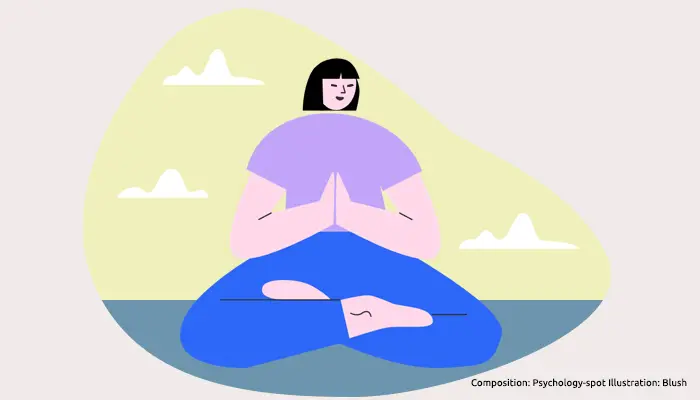
Too many things, too many commitments, too many stimuli … Modern life is marked by excesses. These excesses put us under unnecessary pressure, so it is not strange that minimalism is gaining ground as an alternative to combat those “too many”. The Swedish, who are the ninth happiest country in the world, have a very interesting concept to find the balance between excess and minimalism: lagom.
What is lagom?
Lagom is a word that could be translated literally as “the right amount”, it refers to the balance in the different aspects of life. It does not embrace any extreme, but neither does it deny them because its goal is to maintain a harmony.
From the etymological point of view, the word lagom comes from an old custom that was called “laget om” and meant to sit as a group. It referred to the times when Vikings gathered around the fire after a hard day’s work and passed horns full of mead. Everyone was expected to drink only a fair share so that the others could drink too. Therefore, lagom is a principle that contains moderation, in which nothing is too much or too little, but simply adequate.
Taken to daily life, lagom encourages us to enjoy a simpler life by finding the balance between simplicity and excess at a midpoint that allows us to concentrate on what is really important to us and makes us happy.
How to apply the lagom without getting frustrated?
For some people, this moderation is synonymous with frustration or a hard self-control that separates us from authenticity and spontaneity. They think that keeping us in balance requires an enormous willpower that ends up wearing us down. But it is not like that.
For the concept of lagom to really imply a major change in our life, we must develop an inner work in two stages:
- Unlearning a large part of what we have learned, which implies not wanting what others want
- Finding what we really want, what makes us happy
Then we can be aware of what we really need, identifying also all the inconsequential things or activities that we can live without. It’s about learning to be happy with less things, but without feeling inhibited, because that would imply a sense of frustration. It is about learning to love more what we have and find pleasure in it, instead of intensely wanting what we do not have.
Lagom is also about managing assertively our emotions, so that they do not take over and make us make decisions that we later regret. That does not mean suppressing emotions but channeling them assertively.
When that inner change occurs, the lagom is not a rope that binds you to moderation but a light that leads you to serenity and joy, away from a stressful lifestyle. It is about not doing the unnecessary or superfluous, focusing on the essentials and knowing when to stop.
We must also bear in mind that each person has their own state of lagom. My state of lagom is not the same as yours, but from balance and moderation we can access mutual recognition spaces that allow us to connect from our essence.
Lagom leads us to a space of individual satisfaction while we create harmony in the social groups in which we insert ourselves. Embracing this concept helps us to reduce our needs, simplify our lives and banish stress to feel more satisfied, happy and balanced.
Remember the Swedish phrase: Lagom är bäst, which means: “Enough is as good as a banquet”. That would be very similar to the advice that Epicurus gave us maany centuries ago: “Be moderate to savor the joys of life in abundance.”
Source:
Åkerström, L. A. (2017) The swedish Word that’s displacing hygge. In: BBC.



